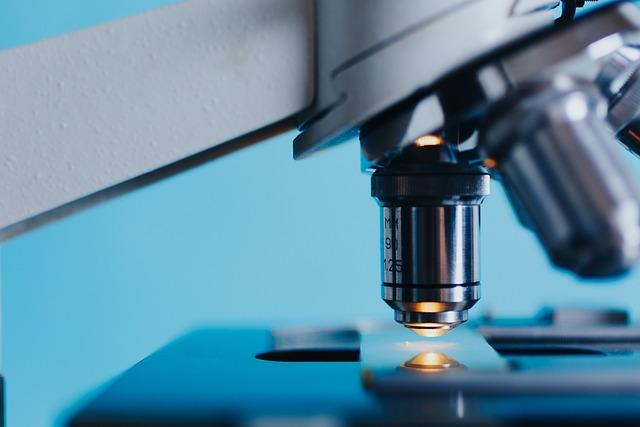In the ever-evolving world of fitness, enthusiasts and athletes alike are perpetually on the hunt for the next breakthrough that could offer a competitive edge. Among the myriad of trends that have emerged, cleanses have captured the imagination of many, promising to detoxify the body and revitalize energy levels. But as we dive deeper into this wellness phenomenon, one must wonder: do these purifying rituals truly enhance fitness performance, or are they merely a mirage in the desert of health fads? This article embarks on an exploration of the science and stories behind cleanses, aiming to separate fact from fiction and uncover whether these detox strategies hold the key to unlocking peak physical potential.
Exploring the Science Behind Cleanses and Athletic Performance
The allure of cleanses often revolves around their promise to detoxify and rejuvenate the body, but their impact on athletic performance remains a topic of debate. Athletes and fitness enthusiasts might be tempted to embrace cleanses with the hope of enhancing their performance, yet the science behind these practices suggests a more nuanced reality. While some cleanses may offer temporary relief from bloating or a short-term feeling of lightness, they may not necessarily translate into improved physical prowess. It’s crucial to understand that the body already possesses a highly effective detoxification system involving the liver and kidneys, which work continuously to eliminate toxins.
For those considering a cleanse, here are some points to ponder:
- Nutrient Deficiency: Many cleanses involve extreme calorie restriction or elimination of food groups, which can lead to a lack of essential nutrients crucial for optimal performance.
- Energy Levels: Restrictive cleanses might result in reduced energy levels, potentially hindering training sessions and recovery times.
- Hydration: Some cleanses focus heavily on liquids, which can affect the body’s electrolyte balance, impacting muscle function.
- Metabolic Impact: Sudden dietary changes can disrupt metabolism, making it challenging to maintain energy during intense workouts.
Ultimately, athletes may benefit more from a balanced diet rich in whole foods, which supports sustained energy and recovery rather than relying on the quick fixes that cleanses might promise.
Nutritional Impact of Cleanses on Energy Levels and Endurance
When embarking on a cleanse, many individuals report a surge in energy and enhanced endurance, but how does this translate into fitness performance? The nutritional impact of cleanses can vary widely depending on the type and duration. While some cleanses may offer short-term benefits by eliminating processed foods and introducing nutrient-dense fruits and vegetables, others might lack essential macronutrients necessary for sustained energy levels. Key components to consider include:
- Glycogen Stores: Cleanses often restrict carbohydrate intake, which can deplete glycogen stores, leading to decreased stamina and endurance during workouts.
- Protein Intake: Adequate protein is essential for muscle repair and recovery. Many cleanses may fall short, impacting muscle endurance and overall strength.
- Hydration: Some cleanses emphasize hydration, which can improve circulation and energy levels, but excessive fluid intake without electrolytes might cause imbalances.
Ultimately, the nutritional impact of a cleanse on fitness performance is highly individualized. While some athletes might find temporary boosts in energy, others may experience fatigue due to nutrient deficiencies. To optimize fitness performance, it’s crucial to tailor a cleanse that maintains a balanced intake of carbohydrates, proteins, and fats.

Potential Risks of Cleanses for Athletes: What to Consider
- Nutrient Deficiency: Athletes require a well-balanced diet rich in proteins, carbohydrates, and fats to support their high energy demands. Cleanses often limit or eliminate these essential nutrients, potentially leading to deficiencies that can impair performance and recovery.
- Muscle Loss: Many cleanses are low-calorie and can result in the body using muscle tissue for energy. This can be particularly detrimental for athletes who rely on muscle strength and endurance for their sport.
- Dehydration: Some cleanses involve diuretics or laxatives, which can cause significant fluid loss. Dehydration is a serious concern for athletes, as it can lead to decreased performance, heat-related illnesses, and longer recovery times.
- Energy Depletion: Restrictive diets may leave athletes feeling fatigued and sluggish, unable to meet the physical demands of their training regimen. This energy depletion can hinder their ability to perform at peak levels.
- Impact on Mental Health: The psychological effects of strict cleansing diets can include stress and anxiety, particularly if athletes feel they are not meeting their nutritional needs. This mental strain can further impact their overall performance and well-being.
While the allure of cleanses is often tied to promises of quick weight loss or detoxification, it’s crucial for athletes to weigh these potential risks against any perceived benefits. Ensuring a diet that supports sustained energy, muscle maintenance, and overall health is key to achieving optimal fitness performance.

Expert Recommendations for Safe and Effective Cleanse Practices
When considering a cleanse to boost fitness performance, it’s essential to prioritize safety and efficacy. Experts suggest choosing a cleanse that emphasizes whole foods and balanced nutrition rather than extreme calorie restriction. A well-rounded cleanse should include a variety of fruits, vegetables, lean proteins, and healthy fats to ensure that the body receives the nutrients it needs to function optimally.
- Hydration is key: Ensure you are drinking plenty of water to help flush out toxins and support overall bodily functions.
- Gradual integration: Slowly incorporate cleanse practices into your routine to avoid shocking your system.
- Listen to your body: Pay attention to how your body responds and adjust the cleanse as needed to maintain energy levels and performance.
Furthermore, it’s advisable to consult with a healthcare professional or a nutritionist before embarking on any cleanse, particularly if you have underlying health conditions. They can provide personalized advice and help tailor a plan that aligns with your fitness goals without compromising your well-being.
Final Thoughts
In the grand tapestry of fitness and wellness, the allure of cleanses continues to captivate those in pursuit of peak performance. As we unravel the threads of scientific evidence and anecdotal claims, the picture remains nuanced and complex. Cleanses may offer a temporary sense of renewal, a brief interlude in the relentless symphony of training, but their long-term impact on fitness performance remains a subject ripe for further exploration. Ultimately, the journey towards optimal fitness is deeply personal, a mosaic of individual choices and experiences. As you stand at the crossroads of tradition and innovation, let curiosity be your compass, guiding you to what truly enhances your own performance. the most profound cleanse may not be a matter of diet, but a refreshment of perspective, a renewed commitment to understanding and nurturing your body in all its remarkable potential.

































